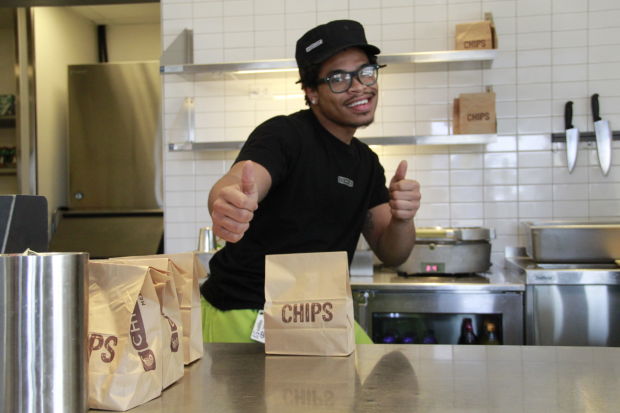Today I’d
like to discuss the implications of two recent changes to the Chipotle menu;
the temporary removal of Carnitas, and the addition of tofu-based Sofritas.
 |
| The sign explaining the lack of pork, found in the Chipotle line in January |
Carnitas
was removed from the menu in January of this year at the majority of Chipotle
locations when it was discovered that one of their major suppliers was not
responsibly raising its meat. One of Chipotle’s differentiating factors is the
idea that they believe that animals deserve to be treated humanely. In this
case, the pigs were being kept in cramped pigpens instead of being allowed to
roam freely. While this does not necessarily affect the finished product in
terms of the quality of the actual pork that goes into a burrito, it affects
consumer perception of the brand as a whole. Chipotle tries through its
marketing to create a schema (CB chapter 3) which includes responsible
consumerism. This made national news. For consumers who have a strong
self-concept of caring for animal welfare, this news would likely convince them
that Chipotle is in line with their own personal values. It is reasonable for
consumers to have a self image of themselves (CB chapter 6) that includes
compassion for helpless animals, which Chipotle proved is something they care
about as a brand. My friend Dillon was telling me that although Carnitas was one of his favorite ingredients, he has a strong enough brand loyalty that he continued to eat at Chipotle even when the Carnitas wasn't available, This comes in part because he is concerned with where his food comes from. Responsible farming is something that several brands discuss, but it isn't something consumers are easily able to evaluate. By removing Carnitas from their menu, they proved that they are serious about caring about animals.
 |
| This was added to Chipotle menus to inform customers about Sofritas |
 |
| Here's Divya and me with a fake palm tree. |
Thanks everyone! Now tell me, have you tried Sofritas? Also, is there a brand which increased your loyalty by attracting your friends as consumers?




